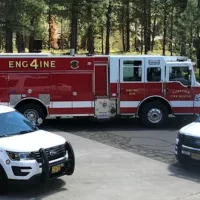Central Oregon Community College (COCC) is now authorized to offer the state of Oregon’s certified Peer Support Specialist training. One of the first such programs in the region, the training is made possible by a partnership with Deschutes County’s Behavioral Health division, the National Alliance on Mental Illness, the Cascade Peer and Self Help Center and PacificSource Health Plans.
A Peer Support Specialist is an individual with lived experience with substance use and/or mental health challenges who is trained to provide supportive services to others. Through shared understanding, respect and mutual empowerment, peer support workers help individuals become and stay engaged in the recovery process, reducing the likelihood of relapse. Peer support services can effectively extend the reach of treatment beyond the clinical setting into the everyday environment of those seeking a successful, sustained recovery process. According to the U.S. Bureau of Labor Statistics, careers in treating substance abuse and mental health are expected to grow by 23% between 2020 and 2030.
“This new training represents over a year of planning that began in July of last year,” explains Dr. Sarah Baron, assistant public health professor at COCC. “It is the first peer support specialist class to be held in Deschutes, Jefferson or Crook counties, and is a collaborative effort that will involve team-teaching with community partners and peer support specialists working in the field. We will constantly update the training to meet the needs of the region, and graduates will help contribute to a healthier Central Oregon.”
“This training was developed in an effort to increase our communities’ access to Peer Support Specialists,” adds Shannon Brister-Raugust, Program Manager at Deschutes County’s Behavioral Health division. “Our curriculum is unique in that it involves local Certified Peer Support Specialists, Recovery Mentors and Family Support Specialists who actively work within our community, enriching the learning environment through applicable hands-on experience.”
COCC’s four-week module prepares completers for certification to work as advocates in mental health and addiction treatment settings. The curriculum teaches strategies in wellness, self-efficacy, empowerment and recovery, as well as topics in crisis intervention and trauma-informed care.
Classes begin at COCC the week of September 19 and will be held in a mix of online and in-person formats. There are no academic prerequisites and enrollees do not need a high school diploma or GED to enroll.
Scholarships for the training are available courtesy of matching grants from the Central Oregon Health Council and American Rescue Plan funds allocated by Deschutes County. The scholarship application is open now until Sept. 5. For more information on both the training and the scholarships, visit
cocc.edu/programs/public-health.

















